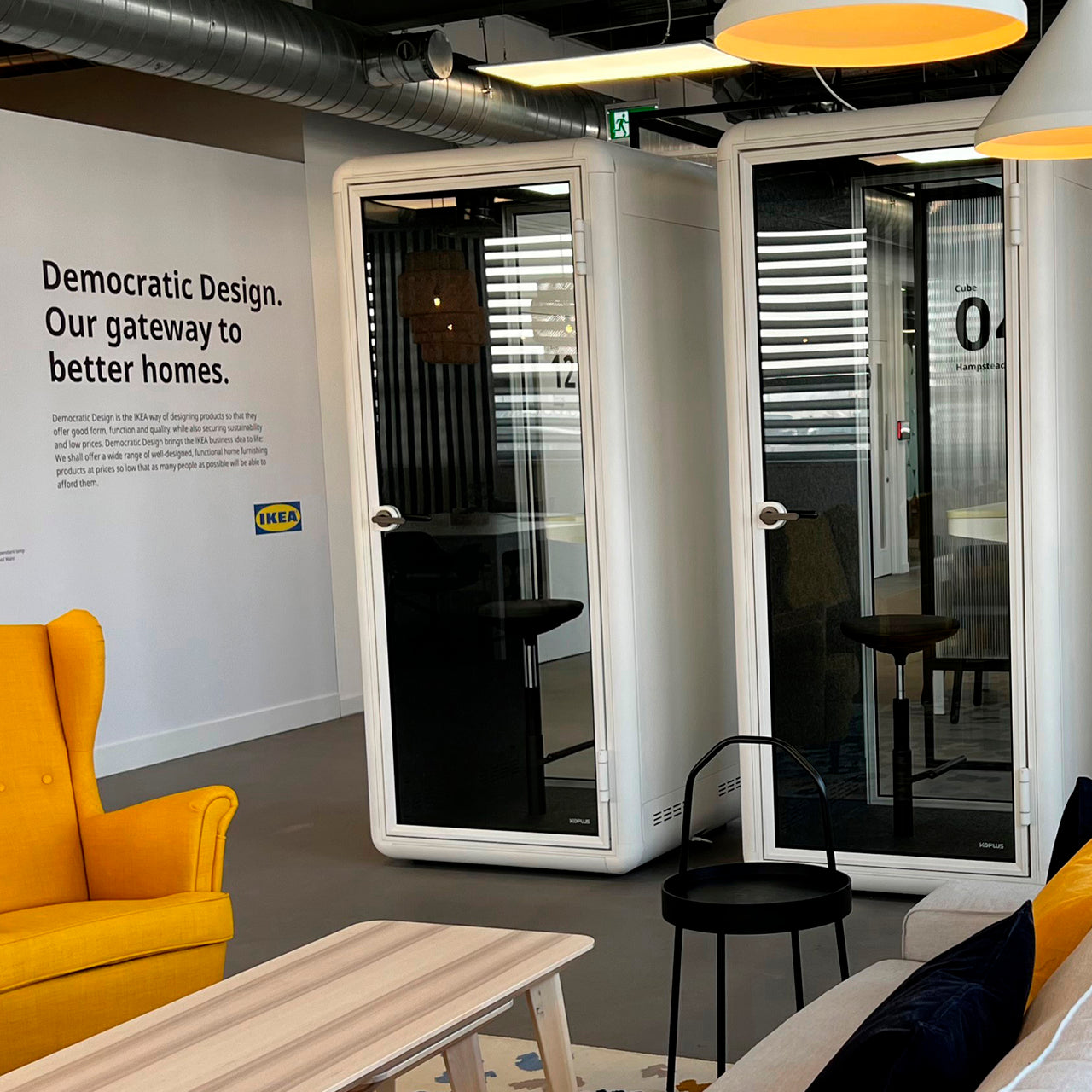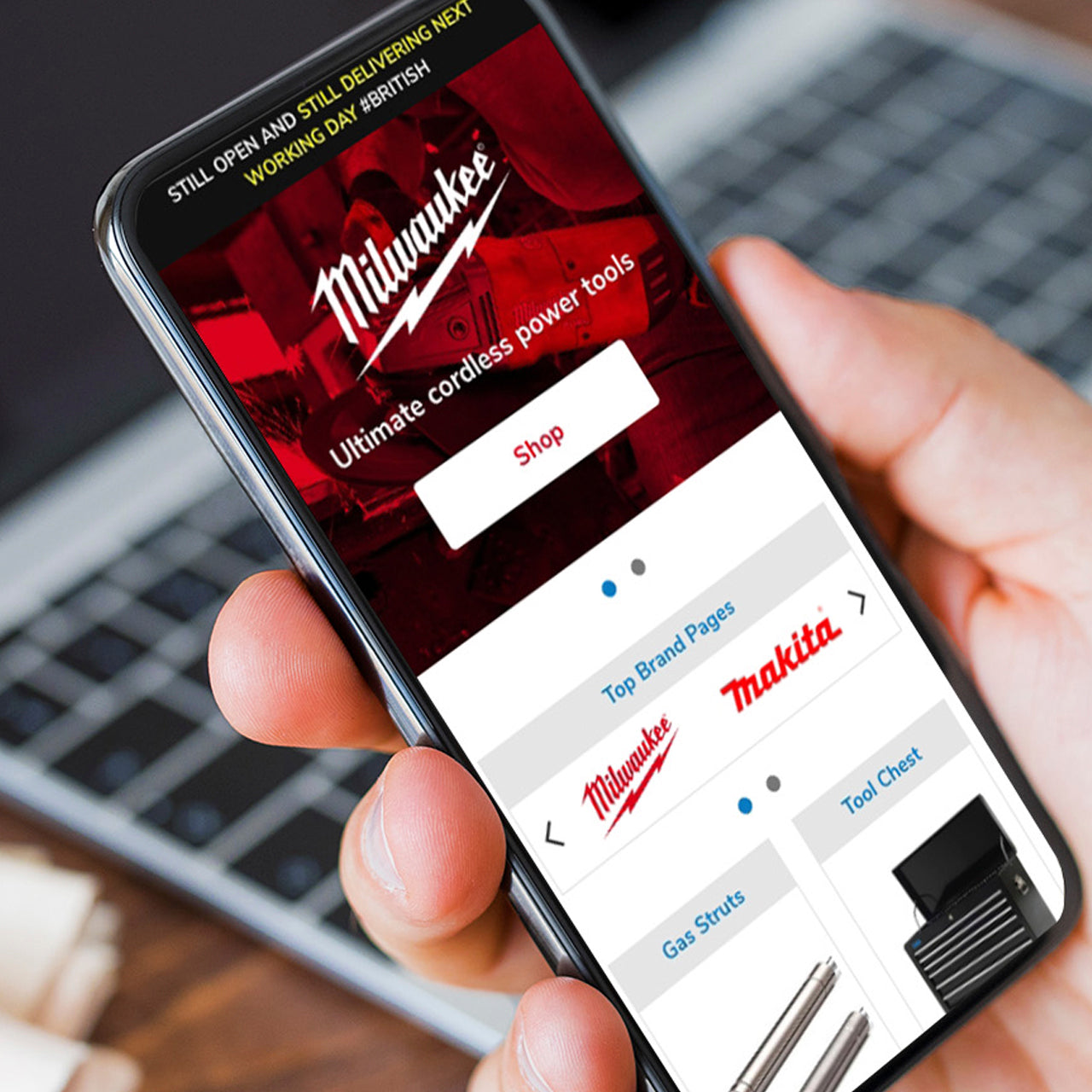9 reasons brands move to a new eCommerce support agency
19 November 2025

Support shapes how smoothly your eCommerce store runs and grows. Find out why our clients transitioned to Absolute for a better service and results.
Why growing brands switch eCommerce support agencies
Even after launch, a website continues to evolve, and for Magento websites especially , support is critical for the website to function. New product ranges need uploading, campaigns need landing pages, website performance needs tuning, integrations change, customer expectations rise, and last but not least, security patches need updating.
When support from an existing eCommerce agency is slow, unclear or inconsistent, the business feels it. Campaigns stall, issues linger, teams lose confidence and opportunities can be lost. Many brands eventually look to move their support to a partner who is more proactive, more transparent, and more reliable.
Over the past few years we’ve seen this pattern across a wide range of clients, from manufacturers to lifestyle brands and specialist B2B. The reasons behind the switch are strikingly consistent.
Common triggers why brands switch agencies
1. Poor communication and relationship issues
A primary reason for clients leaving their current agency is the feeling that their specific needs are not understood or prioritised. A lack of efficient, transparent, and proactive communication can lead to frustration, misunderstandings, and differing expectations regarding scope, due dates and results.
Clients want to feel valued and in capable hands, and when this human element is missing, they are more likely to seek a new partner.
2. Lack of transparency in progress and costs
If you don’t know what work is being done, how long it’s taking, or why your invoices look the way they do, trust fades fast. Support can be happening somewhere in the background, but visibility is limited.
When transparency is missing, the relationship between you and your support partner stops feeling like a collaboration. Instead, you're chasing updates instead of planning ahead, and trying to decode invoices instead of focusing on performance.
Over time, that uncertainty becomes more than just frustrating. It slows down decision-making, affects trust, and creates friction.
What brands are looking for in their eCommerce support provider:
- Clear communication about what’s being worked on
- Realistic timelines and expectations on when work will be delivered
- Clear cost structures with breakdowns of where support hours go
- A prioritised growth plan and roadmap, not a reactive backlog
- A dedicated UK based team for consistency and efficiency working in the same time zone
Without all of the above, decision-making becomes slow and stressful.
3. Support that is too slow, inconsistent or simply not there
If you’ve ever raised a ticket and waited a week (or more) to hear back, you’ll know how damaging slow support can be. Tickets sit unresolved, problems resurface, and small issues snowball. Clients can end up managing things themselves because support simply isn't there.
Your support partner should:
- Acknowledge issues quickly, even if the issue cannot be resolved immediately
- Communicate progress clearly and provide updates as work moves forward
- Fix problems thoroughly and correctly, rather than rushing short-term patches
- Prevent repeat issues where possible by identifying and addressing causes
4. Feeling like just another account instead of a valued partner
Some eCommerce support agencies focus on their projects, but treat support as an afterthought. Once the launch is over, the relationship shifts from collaborative to transactional. Everything becomes a ticket, a queue, and a wait. There’s no roadmap, no ongoing optimisation after launch.
We work differently. We handle both project delivery and ongoing support as one continuous roadmap. The same development team that understands your build, your data structures, your theme decisions and your commercial goals stays involved after launch, while you transition into support. That means support isn’t just about fixing issues. It’s about continuing the direction and momentum we’ve already built together.
The transition to support starts with an introduction to your new Account Manager before launch. Behind the scenes, the Account Manager is in the loop as the project progresses through its final stages, so the knowledge and strategy carry forward seamlessly.
Support isn’t a downgrade or a “maintenance mode” phase. It’s where the site continues to evolve, improve, and respond to what your customers and data are telling you.
And if you’re joining us directly into support?
Not every client comes to us via a new build. Many already have a Magento site live and simply need better ongoing support. In that case, we start with a clear onboarding phase:
- Technical review of your theme, integrations, apps, hosting and performance baseline
- Backlog and priorities workshop to understand what’s urgent vs. what’s strategic
- Support system setup using our reliable hosted ticketing channel
- Introduction to your Account Manager who’ll be working with you 1:1
- Defined monthly roadmap so you always know what’s happening next
- Regular calls with your account manager, so you can discuss things over a Teams call, as opposed to a ticket/email
- Strategy meetings quarterly/every six months, with the wider team
This means you’re not waiting weeks to settle in.
You’re supported from day one, with clarity, structure and momentum.

5. The business has outgrown their eCommerce support agency's model
Sometimes the support from their current partner isn’t bad. It’s just no longer enough. Some clients need ongoing optimisation after launch. In other words, they need a support model that doesn’t just maintain the site, but actively improves it.
As brands scale, the eCommerce environment gets more complex:
- More product data to manage and enrich
- More campaigns running simultaneously across different channels
- More integrations tying into logistics, reviews, CRM, feeds and fulfilment
- More user journeys to consider, from acquisition to repeat purchase
A static support setup often can’t keep up with that pace. Ongoing Magento support needs to evolve from reactive troubleshooting to ongoing enhancement. Instead of “fixing what breaks,” the focus shifts toward shaping the store around customer behaviour, performance data and commercial priorities.
6. Poor migration or missing data following launch
Some clients have a poor project build experience with their agency, often because the data has not been fully understood, there was insufficient discovery, or clients don't like the disconnect that often takes place when the project is outsourced overseas.
As a Adobe Bronze Solution Partner and Shopify Plus Partner, we are eCommerce experts with a UK based certified team - so often we find clients are seeking a 'safe pair of hands' for ongoing support, off the back of a poor project experience.
7. Lack of Magento platform expertise
Magento is a complex platform with a steep learning curve, requiring specialised, certified expertise to manage effectively. Clients often switch agencies if their current provider demonstrates a lack of skill, relies on outdated practices, or has developers who make recurring mistakes.
This can lead to ongoing issues with site stability, performance, security, and scalability. Quality issues, such as frequent bugs or slow site speed, are major causes of dissatisfaction.
Our expertise allows us to offer a fixed cost plan, for items such as upgrades. security and PCI compliance, so our clients can easily manage and predict their website maintenance and security costs
8. High costs and perceived lack of value
While price is a factor, the core issue is often the perceived value for the money spent. Clients may find the total cost of ownership (TCO) too high, especially if they are faced with unexpected fees, soaring maintenance costs, or if the agency’s work doesn’t deliver a measurable return on investment (ROI).
If clients feel they can get better offers or more value elsewhere (sometimes by moving to a different platform like Magento or Shopify), they will consider a change in support services provider.
9. Failure to keep up with evolving needs and technology
eCommerce technology, and the Magento platform itself (with regular updates, security patches, and new features), evolve rapidly. Clients may leave an agency that fails to implement regular updates, adopt new technologies (like PWAs or Hyvä themes), or provide expert guidance on strategies for future growth.
If an eCommerce development agency does not adapt to the client’s changing business needs or the market dynamics, the client will seek a more proactive partner with their eyes on what's happening and what's next.

What brands are really looking for when they switch
It’s rarely about reducing cost. It’s about increasing confidence.
Brands want clarity on what’s happening and why, consistency in support that doesn’t disappear when workloads rise, momentum that keeps the site improving rather than sitting still. Additionally, there's the question of accountability - one partner who takes ownership end to end.
Benefits of working with an eCommerce support agency
The benefits of partnering with the right eCommerce support agency aren’t just technical, they show up in day-to-day confidence and how smoothly the business operates.
- You get clear communication, so you always know what’s being worked on, what’s next and when things will be delivered. That means no surprises, less stress and better planning.
- You get faster response and resolution, so issues don’t linger or grow into bigger problems. This leads to more stability, more uptime and much more confidence when launching campaigns.
- You benefit from proactive optimisation. The website keeps evolving based on performance data, user behaviour and commercial priorities. This naturally leads to stronger UX and better conversions.
- You gain strategic input, not just execution. Decisions are guided by insight rather than guesswork, helping you choose the right improvements at the right time for long-term growth.
- You have a flexible scope of work, where support adapts to the needs of the business. Some months require development, others lean more into CRO or SEO. The overall goal in working with a reputable support agency is to make sure your hours deliver meaningful value.
- And most importantly, you get a true partnership. A team working with you, not in isolation. Someone who understands your goals, your products and your customers, and is invested in your success.
When support is done well, the change is noticeable:
- Marketing teams stop firefighting and get back to planning campaigns
- Product teams make merchandising updates without hesitation
- Site performance improves without drama
- Leadership invests with confidence, not caution
A fixed cost alternative to Magento support retainers
If you need tighter cost control, fixed cost Magento maintenance becomes the best-fit option. You get all essential maintenance handled at a predictable price, making budgeting easier and is ideal if you don't anticipate requiring full Magento support.
What is Magento fixed cost maintenance?
Fixed cost maintenance is a structured plan that covers essential ongoing maintenance for your Magento website at a set price. This typically includes upgrades, security patches, PCI compliance requirements, module updates and other essential technical tasks that help keep the website fast, secure and stable.
Why our clients chose fixed cost maintenance
For our clients who rely heavily on their Magento website being stable and consistent, but without the premium cost for Magento support retainers, our fixed cost maintenance plan delivers exactly that:
- Predictable budget: Pay one price for your essential Magento updates.
- Guaranteed maintenance: Essential tasks don’t get deprioritised in favour of new development.
- Risk reduction: Regular updates reduce vulnerabilities, performance issues and downtime.
- Clear separation of maintenance vs improvements: Even when subscribing to our Magento support plans, a fixed cost maintenance plan covers technical essentials, while retained hours or additional scopes can focus on growth and optimisation.
- Better long-term planning: When maintenance is already accounted for, our clients can use their strategic support hours for UX improvements, CRO, SEO, new features and campaigns.
Fixed cost maintenance ultimately gives businesses what they want most. Confidence that the essentials are taken care of, so they can focus on growth, campaigns and customer experience.
Ready to work with a support agency that delivers value?
If you’re feeling any of the pain points above, like unclear communication, slow support, lack of proactive direction, it may be time to reconsider your support partner. We work with brands that want reliability, transparency and ongoing improvement. Not just ticket resolution.
We’ll review your current challenges and pain points, how you manage your website, identify what’s slowing progress, and discuss how to build a support structure that actually supports growth.
Send us a message and we’ll schedule a discovery call.
Contact Us to discuss how we can help increase sales and boost your online performance!
INSIGHTS
CASE STUDIES

Notcutts - WordPress blog migration to Magento
We helped Notcutts simplify their platform by moving their blog into Magento, keeping SEO intact throughout the migration.
-
Magento -
-
Support

Pantherella
Magento 1 migration, front-end development, and Magento 2 support for sock manufacturer Pantherella. Learn more about our work with Pantherella.
-
Magento -
-
Support

Fired Earth UX Improvements
Absolute worked with Fired Earth to deliver a programme of UX improvements.
-
Magento -
-
Support

Furnify
A modern homepage redesign with customer UX in mind, from design stage to using Magento 2’s powerful pagebuilder to make use of the latest functionalities.
-
Magento -
-
Support

SGS Engineering
Magento 1 to Magento 2 Open Source Migration Success for SGS Engineering.
-
Magento -
-
Support

Fired Earth
A design and user experience study for a legendary lifestyle brand plus migrating their ecommerce store from Magento1 Enterprise to M2 Commerce Edition.
-
Magento -
-
Support

Embody
Driving revenue and improving overall performance for Embody, using our expertise in Magento, eCommerce, UX, and web design and development.
-
Magento -
-
Support
CONTACT
Are you excited to get your next project up and running? Or are you unsure what is dragging you down?
Contact Us to discuss how we can help increase sales and boost your online performance!

Enter your email address to sign up to our newsletter, featuring case studies, insights, industry news and much more.
If this is something you would like help with, please get in touch.






